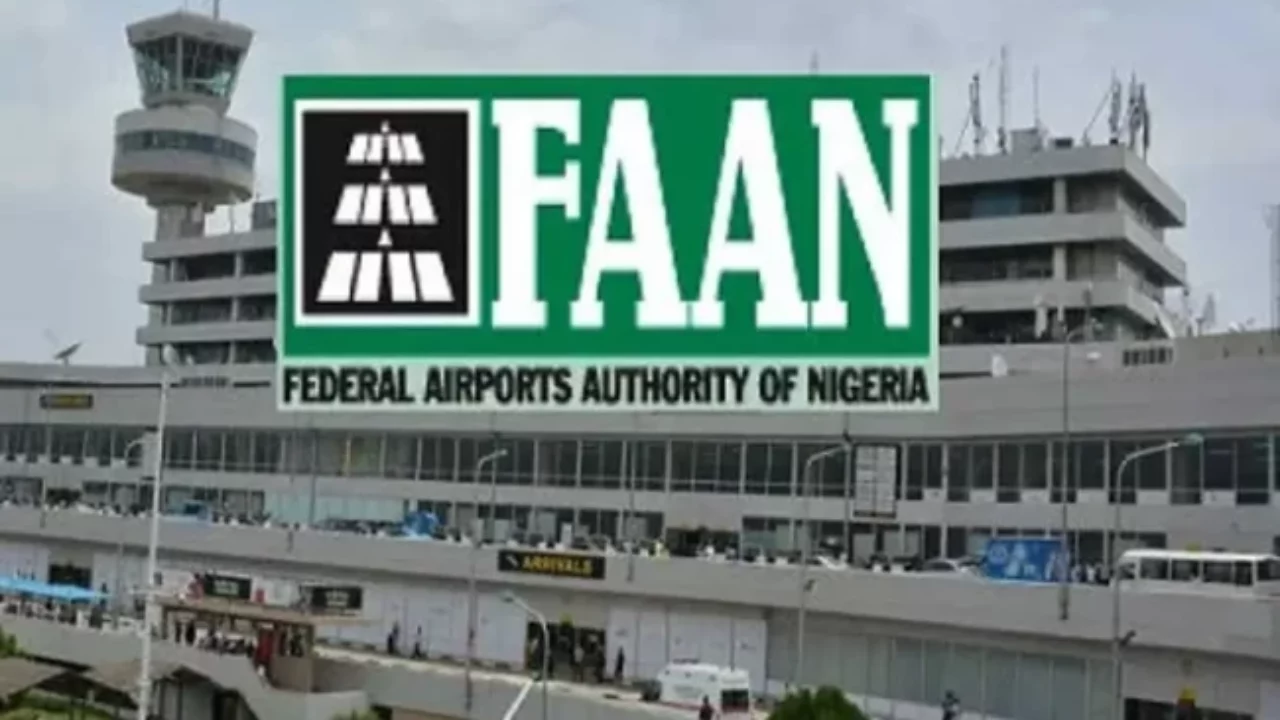If you’ve ever come across the acronym FAAN and wondered what it means, you’re not alone. It might not be a common word in English, but it plays a crucial role in Nigeria’s aviation industry. FAAN stands for the Federal Airports Authority of Nigeria (FAAN), the agency responsible for managing the country’s commercial airports, ensuring safe and efficient air travel for passengers and cargo alike.
In this article, we’ll take a deep dive into FAAN’s historical background, its salary structure, and the essential responsibilities it upholds in the aviation sector.

Everything You Need to Know About the Federal Airports Authority of Nigeria (FAAN)
The Civil Aviation Act of 1964 saw the reform and establishment of a legal framework of aviation in Nigeria, and this act gives the government the power to handle everything that has to do with aviation in the country.
It gave them the exclusive power to build and make laws and regulations that govern the aviation sector. It is this power that led to the establishment of different bodies under the aviation industry to see to its day-to-day activities and to maintain standards. FAAN is one of the bodies and we will examine it in more detail in the next section.
The Historical Background of FAAN
The origins of civil aviation in Nigeria can be traced back to British colonial rule, with the first recorded aviation activity occurring in 1925. That year, three Airco DH.9A aircraft from the Royal Air Force (RAF) landed in Maiduguri before proceeding to Kano and Kaduna. Around the same period, a British pilot made an emergency landing on a horse racecourse in Kano, marking the first recorded flight in the country.
As aviation activities increased, there was a growing need for designated landing areas. By the 1930s, commercial flights began operating, with pilots such as “Bud” Carpenter flying between Kano and Lagos using railway tracks as navigational aids. The Imperial Airways, a precursor to British Overseas Airways Corporation (BOAC), initiated regular airmail and passenger services between London and Nigeria in 1935. By 1936, commercial aviation was firmly established, with routes extending to Lagos.
The increasing significance of air transport led to the development of aerodromes in locations such as Maiduguri, Lagos, Kano, and Kaduna. During this period, early pilots had to navigate difficult weather conditions with limited infrastructure, and emergency repairs were often carried out under challenging circumstances.
In 1958, the Nigerian government partnered with BOAC and Elder Dempster Lines to form the West African Airways Corporation (Nigeria) Limited, which later evolved into Nigeria Airways. This marked the formal foundation of Nigeria’s commercial airline industry.
The Birth of The Federal Airports Authority of Nigeria (FAAN)
The Airport Authority of Nigeria was established in the year 1971 but was then called the Nigeria Airport Authority (NAA). They are tasked with carrying out duties and building functionalities that will help in the maintenance and building of airports in the country. However, in 1995, due to the reform that was going on, the name was changed from Nigeria Airport Authority (NAA) to Federal Airports Authority of Nigeria (FAAN).
The Federal Airports Authority of Nigeria (FAAN) was established to manage and oversee the country’s commercial airports, ensuring efficiency and economic development in air transport services. FAAN continues to play a vital role in Nigeria’s aviation sector, maintaining airports, providing logistics support, and ensuring passenger and cargo safety.
Also read: Everything You Need to Know About the Federal Ministry of Aviation in Nigeria
Salary and Structures at the Federal Airports Authority of Nigeria (FAAN)

The FAAN salary structure ranges from #70,000 to #400,000. The casual workers are the least paid, while the senior managers and other top executives from the chief accountant earn from #185,000 to #400,000.
| Levels and Hierarchy | Position | Salary Range (monthly) |
| Level 2/Mid-Level Staff | casual works | ₦71,000 |
| Level 3/Senior Staff | mechanical engineer | #95,000 |
| Level 4/Executive Staff | accountant | #250,000 |
| Level 4/ Executive Staff | unit managers | #300,000 |
| Level 1/Junior Staff | head of productions | #400,000 |
Important note: The above salary structure is speculative; it is not gotten from their website.
Responsibilities of (FAAN) Employees
The Federal Airports Authority of Nigeria, or FAAN, is a federal agency responsible for managing commercial airports in Nigeria and providing air services to passengers as well as cargo airlines. The organization is divided into several departments, each having its own set of professional duties. That said, here is a breakdown of the organizations’ broader set of professional responsibilities to serve their mandate.
- Working with airport management to ensure the successful implementation of safety, personnel, and budget policies.
- Following the FAAN guidelines defined by the federal government.
- Using the state funding for due maintenance and improvements.
- Ensuring that the airport services meet the community’s (both passengers and cargo airlines) needs and requirements.
- Providing airline services to all commercial airports across Nigeria.
- Managing and optimizing the orderly safety of the economic operations of all air transports across Nigeria.
Conclusion
The Federal Airports Authority of Nigeria (FAAN) plays an important role in ensuring the efficiency, safety, and economic viability of air travel in Nigeria. From its historical evolution to its operational responsibilities, FAAN continues to shape the aviation sector through airport management, regulatory oversight, and service improvement.
Whether you are interested in working with FAAN, understanding its salary structure, or simply learning about its impact, this guide provides a comprehensive overview of everything you need to know about this essential agency in Nigeria’s aviation industry.
Follow us on this blog for more informative reads like this.
References
- Wikipedia – Federal Airports Authority of Nigeria

